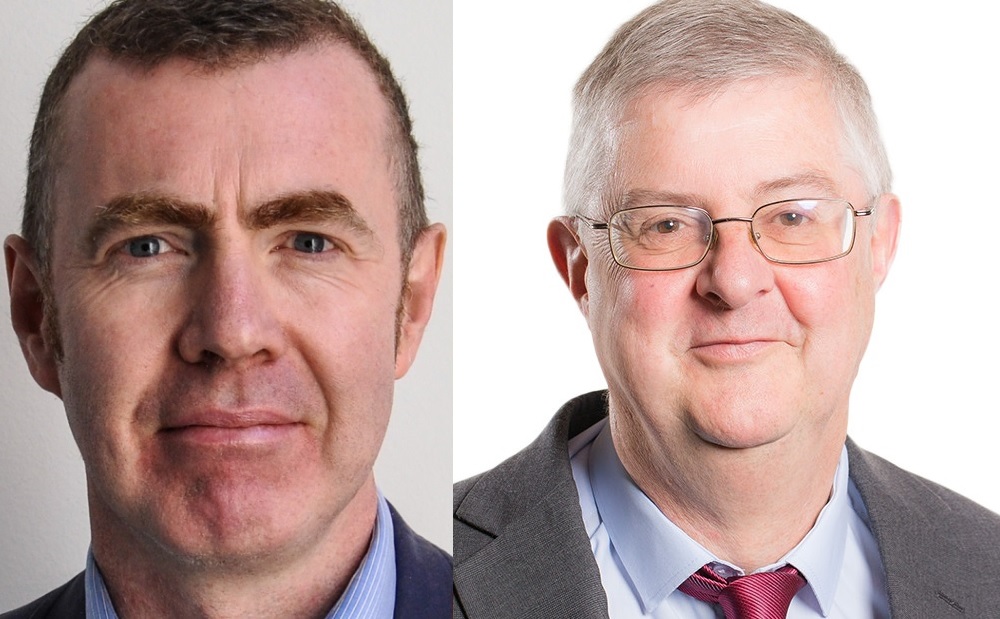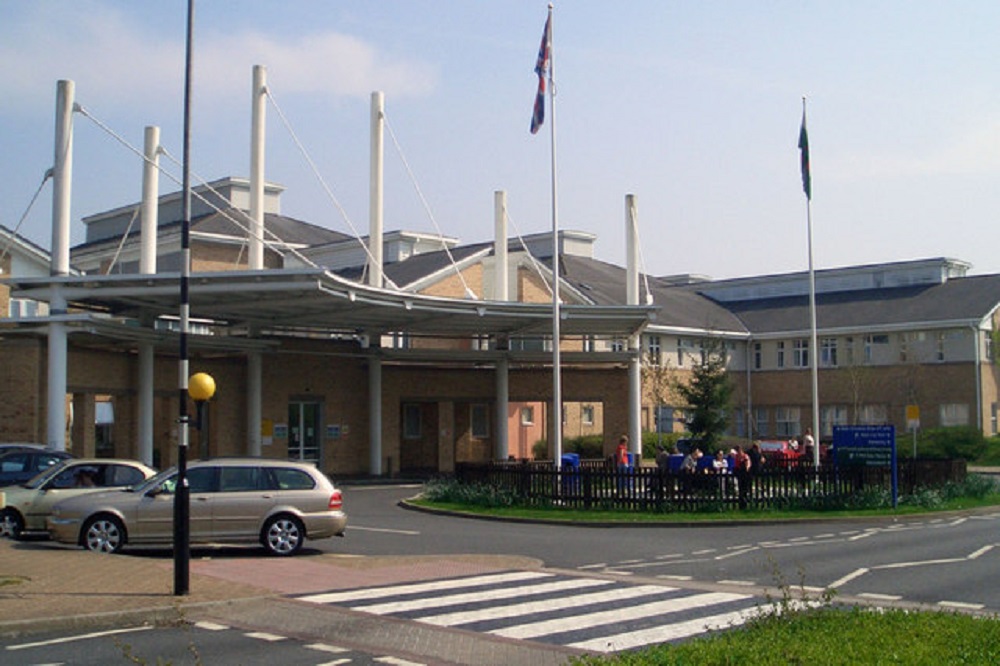Today’s Senedd Roundup: Labour accused of “People’s Vote” ruse and school funding concerns raised again

Owen Donovan, Senedd Home
Labour accused of “People’s Vote” ruse following second Brexit deal rejection
Following yesterday’s second rejection of the EU Withdrawal Agreement at Westminster, Plaid Cymru leader, Adam Price AM (Plaid, Carms. E. & Dinwfwr) tabled an emergency question asking for a statement on Welsh Government policy in light of the vote.
“A unicorn is still a fantasy creature, whether painted red or blue”
While the First Minister’s initial response was something you would expect – Welsh Government policy remains unchanged – it quickly boiled over.
Adam Price said Jeremy Corbyn has, effectively, led a ruse on his support for a second referendum and was trying to pursue a Brexit that was essentially the same as the one Westminster has already rejected; “a unicorn is still a fantasy creature, whether painted red or blue”. If the First Minister still believed Corbyn on a second referendum then he was, “either a liar or a fool”.
The full exchange is below:
Needless to say, the First Minister was visibly angered by the disrespectful tone (at Westminster calling someone a “liar” is deemed unparliamentary language and could see an MP expelled from the chamber). He then suggested Plaid Cymru was willing to overturn the referendum result and back the revocation of Article 50.
In terms of the substance of the question, the First Minister thought a deal could still be done.
“An orderly exit”
Shadow Brexit Minister, Darren Millar AM (Con, Clwyd West), praised the way in which the Welsh and UK governments were working together to secure an orderly exit from the EU. He asked whether there was still a commitment to work with London regardless of whether there was a deal or not?
The First Minister said it was his government’s responsibility to work with the other governments of the UK – even if he disagrees in the manner the Prime Minister has approached it. Nonetheless, while he opposes a No Deal it was the job of a “responsible government” to prepare for any eventualities.
David Rees AM (Lab, Aberavon) thought we were accelerating towards a “No Deal” and the UK Government had made no attempt to change direction. Was it time for a new UK general election?
A supporter of a second referendum, Lynne Neagle AM (Lab, Torfaen), said the EU has been clear there’s no scope for further negotiation and did the First Minister agree that there are few options remaining on the table – including a “People’s Vote”.
The First Minister reminded him that MPs can take a No Deal off the table tonight in another vote and said that when the House of Commons has failed twice to get a deal through then it was time for a fresh House of Commons.
He saw five possible options: leaving with no deal, backing Theresa May’s Deal, a second referendum, a new UK general election or a completely new deal which would garner more widespread support.
Plaid Leader blasts Labour’s Brexit Stance
School funding concerns raised again by AMs
Following the fireworks of this afternoon’s emergency question, things moved on to education questions.
Direct funding not the answer to school “funding crisis”
There were a number of questions on school funding following a teaching union event held at the Senedd last week. Sian Gwenllian AM (Plaid, Arfon) said funding problems would have a far-reaching impact on education, with many schools making cuts to special needs provision and well-being services. One (unnamed) teaching union now supports direct funding for schools; what was the Welsh Government’s view?
The Education Minister said the idea presented problems:
“….direct funding….does not, in my view, address the issue of the diversity of educational provision that we have in Wales. It undermines the law that we currently have, which says that this is the democratic decision-making responsibility of our local authorities, and would be incredibly difficult to do at a continuing time of austerity. It might be easy to do it if budgets were rising and we could have a floor below which nobody dropped….”
– Education Minister, Kirsty Williams AM (Lib Dem, Brecon & Radnor)
Plaid Cymru agreed with the Minister in principle, so was there a need for a generally fairer system of funding schools?
The Minister repeated that until austerity is lifted at Westminster, the Welsh Government and councils will have to be creative in saving and raise money. She was, however, willing to discuss alternative funding proposals.
Making every penny count
Shadow Education Minister, Suzy Davies AM (Con, South Wales West) was pleased money for an uplift in teachers’ pay and pensions from the UK Government was confirmed and wanted assurances all £47.7million of it will go on that purpose.
The Minister confirmed the money was ring-fenced. With that out of the way, Suzy turned to school funding:
“I don’t think I’ve ever heard from so many teachers about core funding as I am the moment, and, yes, we can discuss London’s role in this, but teachers are wise to the fact that the education budget increased this year, and they have questions for you and council leaders about whether central Government grant funding, which is targeted at those diverse needs you mentioned a bit earlier on – whether that is starting to give local authorities a bit of a get-out-of-jail-free card when it comes to providing core budgets to school.”
– Shadow Education Minister, Suzy Davies AM
The Minister accepted that while Suzy Davies wasn’t attacking the principle of policies such as the pupil deprivation grant, but it was one way the Welsh Government were trying to improve the life chances of school pupils from poorer backgrounds – which the First Minister addressed at this week’s FMQs.
A week of INSET days?
Rhianon Passmore AM (Lab, Islwyn) asked whether INSET (aka. teacher training) days could be harmonised across Wales – perhaps even crammed together into an additional week’s term-time holiday which might make it easier for families to take holidays during more affordable times of the year.
Andrew RT Davies AM (Con, South Wales Central) raised the matter of a consultation on extra INSET day to be introduced for teacher training related to the new curriculum. Was there enough capacity to enable all schools to offer that training on the same day, as proposed?
The Minister said the idea of experts going out to all schools was old-fashioned, adding that wasn’t about convenience:
“…. my concern when organising INSET days is not to think about the convenience of the price of a holiday, our INSET days are there to provide teachers with the opportunity to engage in professional learning and to prepare themselves for the challenges of the new curriculum.”
– Education Minister, Kirsty Williams
Stalled progress in cutting smoking rates
Today is No Smoking Day and it was fitting that the summary of this week’s health questions starts with that.
Minister “playing with words” on e-cig safety
“Public Health Wales have shown in their projections that they’re expecting you as a Government to miss your target of reducing the prevalence of smoking across Wales to 16 per cent by 2020 and that you’re currently around five years behind achieving that particular target….I think that what we need to see is a radical sea change in the Government’s approach, particularly in terms of the use of e-cigarettes to promote the cessation of smoking.”
– Darren Millar AM (Con, Clwyd West)
Health Minister, Vaughan Gething (Lab, Cardiff S. & Penarth) said that contacts to the NHS Help Me Quit programme were up 20%. He also said it was more correct to say e-cigs were less harmful than tobacco than “much safer”.
Darren Millar said the Minister was “playing with words” and one of the main reasons Wales has hit smoking targets was because of the take up of e-cigarettes – which are available through quit smoking programmes in England but not in Wales. He also drew attention to the fact 20% of pregnant women in Wales smoke.
The Minister said language mattered as saying something was “safe” could be misleading. On maternal smoking he said the government were working with midwives:
“….to change some attitudes around smoking as well, because if you go outside almost every maternity unit in the country, you’ll find a bunch of fag butts outside. Now, there’s a challenge there for us about changing people’s perception of what they’re doing, not just for themselves, not just when they happen to be pregnant, but actually for other people going in and out of those particular units.”
– Health Minister, Vaughan Gething
Risk-aversion in the NHS
Helen Mary Jones AM (Plaid, Mid & West Wales) said that a 2016 OECD review of the Welsh NHS found that health boards didn’t have the right technical capabilities to drive change – needing a stronger guiding hand – while a parliamentary review found a risk-averse culture within the Welsh NHS. Was the Minister confident that these issues have been addressed?
She also raised the issue of funding:
“Spending on primary care has increased in cash terms by £74 million but that, of course, over the five years is a real terms cut. Spending on secondary care has swallowed up the vast majority of the increases, getting around £845 million extra. Now, this is a clear illustration to me of local health boards failing to move resources and services from hospitals into communities….”
– Helen Mary Jones AM
The Minister told the chamber that while the OECD review made some criticisms, it also dispelled the myth that the Welsh NHS was the worst in the UK. On the stronger hand issue, he regularly intervenes in the NHS where appropriate. He was proud to put more resources into the NHS, despite austerity.
Health & Active Travel
Huw Irranca-Davies AM (Lab, Ogmore) asked what discussions the health department has had with other parts of government on the role of active travel on health and wellbeing. There was clearly a distance between the aims of the Active Travel Act and delivery.
David Melding AM (Con, South Wales Central) was “amazed” by the amount of traffic generated by school runs and ending it would be a big step forward. Rhun ap Iorwerth AM (Plaid, Ynys Môn) asked if the health department could co-fund active travel schemes?
The Minister has noticed changed attitudes to walking and cycling to school himself and there was a challenge in re-normalising walking to school. There were a number of cross-department issues which could have health benefits, such as 20mph speed limits, which he was willing to look at.
Wales on track to meet apprenticeships goals

Labour’s 2016 manifesto included a commitment to create 100,000
during the 2016-2021 term. Yesterday, AMs were updated on progress so far.
“On track”
Deputy Economy Minister, Lee Waters (Lab, Llanelli), said that between April 2016 and July 2018 56,636 apprenticeships started. Despite criticisms for not following England’s approach, he believed the Welsh approach was proving to be the right choice.
“Our apprenticeship scheme is on track. The English scheme is in free fall. The number of starts in Wales has increased. Last week, the (English) National Audit Office reported that instead of rising as they had hoped, the apprenticeship starts in England are 25% lower than they were two years ago, and it said the UK Government is ‘very unlikely’ to meet its target. We have taken a fair amount of stick from the opposition on this, and the evidence at this stage shows that we are right and they’re wrong.”
– Deputy Minister for Economy & Transport, Lee Waters
Future developments include a new online portal to make the apprenticeship application process more user-friendly. New guidelines will also be issued to combat gender and disability equality – something opposition AMs were keen to raise.
Shadow Skills Minister, Mohammad Asghar AM (Con, South Wales East), raised concerns by Estyn that course providers of higher level apprenticeships weren’t managing them well. There were also concerns about careers advice and a lack of transparency around the funding and operation of the apprenticeship scheme.
“Good-quality career advice is essential to promote the benefits that apprenticeships can bring to students at an early stage. Concerns have been expressed about the quality and the availability of careers advice, citing the shortage of trained career advisors and lack of knowledge of apprenticeships and vocational training by school staff. Could the Minister advise the Assembly if he is content with the availability of career advice in Wales and the accuracy of advice on vocational and educational training?”
– Shadow Skills Minister, Mohammad Asghar AM
On careers advice, the Minister said services will be “rationalised” alongside other programmes like ReAct and Jobs Growth Wales – some of which will be delivered by Careers Wales.
“An idealistic picture”
Bethan Sayed AM (Plaid, South Wales West) said the statement painted an “idealistic picture” which masked problems. One of those problems was a lack of women in higher-paying apprenticeships, particularly construction – later echoed by Jenny Rathbone AM (Lab, Cardiff Central), who said women apprentices often end up in lower-paid sectors like hairdressing and childcare.
“As has been stated earlier, the Equalities and Human Rights Commission has said that we need to do much more work to get women into apprenticeships and not just in those apprenticeships that women are often linked to historically. There are a number of opportunities in the building and manufacturing industries, but it’s men, chiefly, who are having access to those and then getting better pay because of that. So, what are you going to do to ensure that that inequality comes to an end?”
– Bethan Sayed AM
She also laid on example after example of flaws in the apprenticeship scheme: Should apprenticeships be funded directly rather than through providers? A low number of Welsh medium apprenticeships (just 0.4%), a lack of degree-level apprenticeship in digital skills and transport costs for apprentices.
The Deputy Minister contested some of the figures; 4% of apprenticeships were assessed in Welsh and 8% at least part-taught in Welsh. He added that while free transport was something worth looking at, it needed to be part of a bigger picture, not confined to specific groups.
Jack Sargeant AM (Lab, Alyn & Deeside) – who’s been through the apprenticeship system himself – asked about skill transfer from older workers to apprentices. Many of the people currently teaching apprentices are nearing retirement age and he believed they should be replaced with recent graduate apprentices. The Deputy Minister was willing to discuss that idea further with officials.
Staffing issues blamed for Cwm Taf maternity service failings

A report into maternity services in the Cwm Taf health board – centred mainly on the Royal Glamorgan Hospital in Llantrisant – found significant staffing issues.
In October 2018, the Health Minister said a midwife shortage would be investigated due to an abnormal increase in infant deaths and other “incidents” in the health board between 2016-2018, believed to be 44 separate incidents in total.
The Healthcare Inspectorate Wales report – which has been reported on in the media but not officially released yet – found serious staff shortages, staff fatigue, poor cover and poor training. The report also reportedly says: “We were concerned about the potential risk to the safety of patients. This is because we did not feel that the resilience of the maternity department was sufficient to maintain patient safety if action was not taken.”
Consultant-led maternity and paediatric inpatient services were withdrawn from the Royal Glamorgan Hospital on March 9th 2019, with patients now being redirected to Merthyr’s Prince Charles Hospital and Bridgend’s Princess of Wales Hospital – the latter of which is due to move into the Cwm Taf health board on April 1st 2019.
Support our Nation today
For the price of a cup of coffee a month you can help us create an independent, not-for-profit, national news service for the people of Wales, by the people of Wales.




